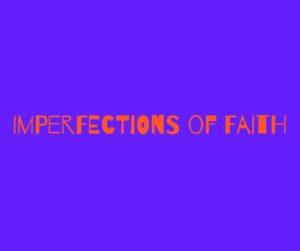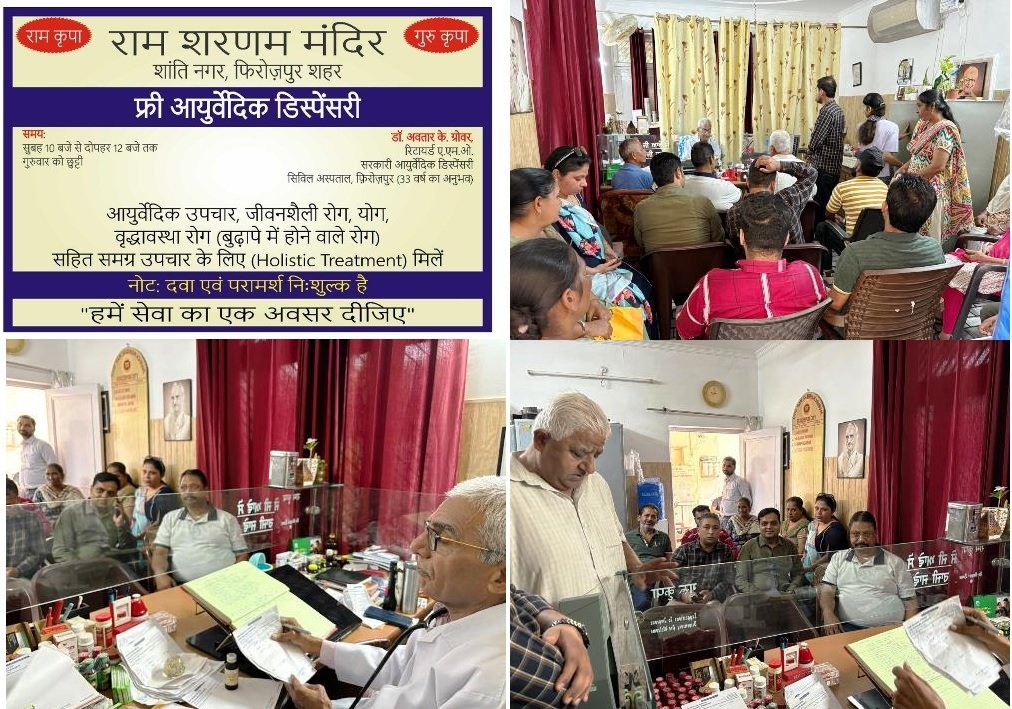Ferozepur News
THE IMPERFECTIONS OF FAITH – Major General Rajiv Edwards, VSM (Retd)

THE IMPERFECTIONS OF FAITH – Major General Rajiv Edwards, VSM (Retd)
- The underpinning of religion is GOD, the epitome of love, and every faith is perceived to be a path to the omnipresent, omniscient, omnipotent and omnibenevolent God. Religion is also important to establish a general ethical framework and provide a sense of community. However, many times, in the pursuit of faith, one tends to wean away from this reality and lose sight of the scriptural truth, ‘that which clings blindly to one idea, as if it were all, without logic, truth or insight, that has its origin in darkness’.
- India is a deeply religious society, with nearly 97% believers in God. However, there is an inexplicable incongruity in our religiosity…the gap between theory and practice. Not surprisingly, the cauldron of society is aboil with the amoral potpourri of every hue. We may not want to link religiosity to social decline, but it does not appear to be a contributory factor to morality as well. Sadly, that role appears to have been usurped by economics, wherein the ethical content of religion is swamped by the dogma of materialism, which tacitly approves unethical behavior.
- Religion is a private calling, but usually practiced with the most public display! Competitive religiosity oft times manifests in an overdrive in public expressions of devoutness …. as if brandishing and propagation of faith is likely to secure ‘bonus points’ for attainment of spiritual goals! This mindset reduces religion to a noun, less a verb, obfuscating the fact that genuine discipleship and faith is measured by parameters other than religious grandstanding and optics. Ironically, in a world of wanton consumerism, marketing of religion too has developed into an industry!
- Secularism, with ‘sarva dharma sama bhava’ as its key tenet, is one of the basic features of our Constitution. In India, with its vast diversity, forbearance is the melody for peaceable co-existence. Sadly, opportunism has laid bare the soul of secularism; the use of God as a means to manipulate the mind and actions of the populace for selfish interests, is no means to justify the ends. Moreover, creation of fault lines between communities is unlikely to fulfill any meaningful purpose, but to raise the ‘costs’ for the country! The contortion of ‘secular’ for ‘sickular’ and ‘secularism’ for ‘appeasement politics’ reflects the dissonance in the secular discourse. The fact is that religion is the opium which everyone wants to reap! And, the ‘tu tu main main’ to claim the secular crown, only lays bare the fact that, ‘hamam mein saare nange hain’!
- The burden of lower socio economic status is more pronounced in developing countries like India. Consequently, religion plays a more functional role in helping citizens to cope with the daily struggle for survival. Not surprisingly, a large number naively kowtow to ‘mentors’ of varied genre and description! Religious leaders have a strong potential to influence lives and shape social values in line with faith based teachings. However, at times, in the process of religious teaching, there is artifact and loss, as well as embellishment and personal bias. God’s word will not steer us wrong, but the ‘Pharisee’s’ of religion often place a superfluous burden on the gullible followers, which distracts from the soul and spirit of faith.
- The programmed schooling that one’s religion is the best and others are probably some flavor of evil may result in exalting one’s religion to the status of the ‘premium faith’, with the devotee willy nilly, becoming the ‘defender of the faith’. This is one of the causes that inhibits the ability of a society to achieve adaptation and integration. The idea that humans need to protect their gods, is potentially more dangerous, than the idea that gods protect humans!
- As per His Holiness, The Dalai Lama, ‘…the reality of the world today is that grounding ethics in religion is no longer adequate…..the time has come to find a way of thinking about spirituality and ethics beyond religion altogether’. The fact is that being religious does not automatically make one spiritual; it is the transition from believer to seeker, inter alia a more meaningful connect to the divine, which distinguishes the two. Religion can take you to the second highest level of Maslow’s Hierarchy of Needs, but only spirituality can get you to the top…the concept of self actualization. This is the ‘ability to become the best version of your (spiritual) self’. It is only then that, rules, checklists and worry of how one is ‘doing religion’ will give way to tranquility and bliss and, in the overall context, a better society. The more righteousness a person uses to bring unconditional good to society, the more one climbs up the rung of humanity!
- Wisdom is the perfection of faith…the capacity of the mind that allows us to understand life from God’s perspective. If spiritual wisdom is indeed the ‘first and highest gift from the God’, then it is equally true that this exceptional benefaction is earned through purity of faith and application of God’s Word to our lives, in ‘form and substance’. This is the soul of religion.
- Swami Vivekananda once said that, ‘I shall call you religious from the day you begin to see God in men and women’. Religion should spend less time talking about the goodness of the Creator and more time acting out that goodness. It is indeed a paradox why human beings cannot imbibe the goodness and love of the God, whom they believe in so fervently. Be that as it may, it appears likely, that for the time being we will continue to live with the contradictions, until and unless, there is ‘visible actionism’, instead of ‘muted acquiescence’…till then, ‘vasudhaiva kutumbakam’ may not be fully realised!
…………………………………………………………………………..
(Major General Rajiv Edwards, VSM** (retd) is a Historical Researcher and Commenter on Social Issues. Views are personal)
…………………………………………………………………………






